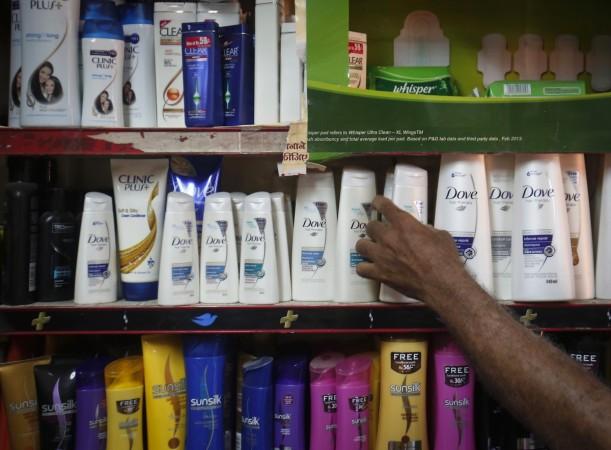
Demonetisation impacted India's largest FMCG company Hindustan Unilever's (HUL's) sales as well as net profit for the quarter ended on December 31, 2016.
Rupee opens higher; Axis Bank leads Sensex, Nifty fall over weak Q3 results
HUL reported on Monday that its net profit (excluding the exceptional gain of Rs 153 crore) for the September to December quarter (third quarter or Q3) declined to Rs 885 crore from Rs 971 crore recorded in the corresponding quarter of the last fiscal year.
Sales from operations for the quarter came in at Rs 8,124 crore, compared with Rs 8,226 crore in the year-ago quarter. Volumes declined 4 percent in the quarter.
In a filing to the BSE, the company said: "The impact was varied across segments, channels and geographies. We responded to these adverse market conditions with speed by rejigging out the supply chain, supported by our channel partners by extending credit and enhance out direct distribution coverage."
The FMCG company said that the squeeze in liquidity due to the cash ban led to a fall in trade pipelines and lower consumer offtake. However, it said, premium segment portfolio continued to perform well during the quarter.
Nonetheless, earnings before interest, tax, depreciation and amortisation stood at Rs 1,355 crore, a 5.2 percent decline. EBITDA margins contracted 80 basis points to 16.3 percent from 17.1 percent year-over-over. HUL's home care revenue was up 1 percent at Rs 2,689 crore versus Rs 2661 crore year-over-over.
Commenting on the Q3 results, HUL chairman Harish Manwani said: "The gradual recovery of the market was temporarily impacted by adverse liquidity conditions. However, our performance demonstrated resilience and agility in this challenging environment. There are early signs of normalisation and our focus continues to remain on innovation led volume growth and improvement in margins."
HUL earnings are largely considered a proxy for Indian consumer sentiment.
Shares of HUL closed almost flat at Rs 863.25 on the BSE on Monday. The quarterly results were announced after the markets closed for the day.
















